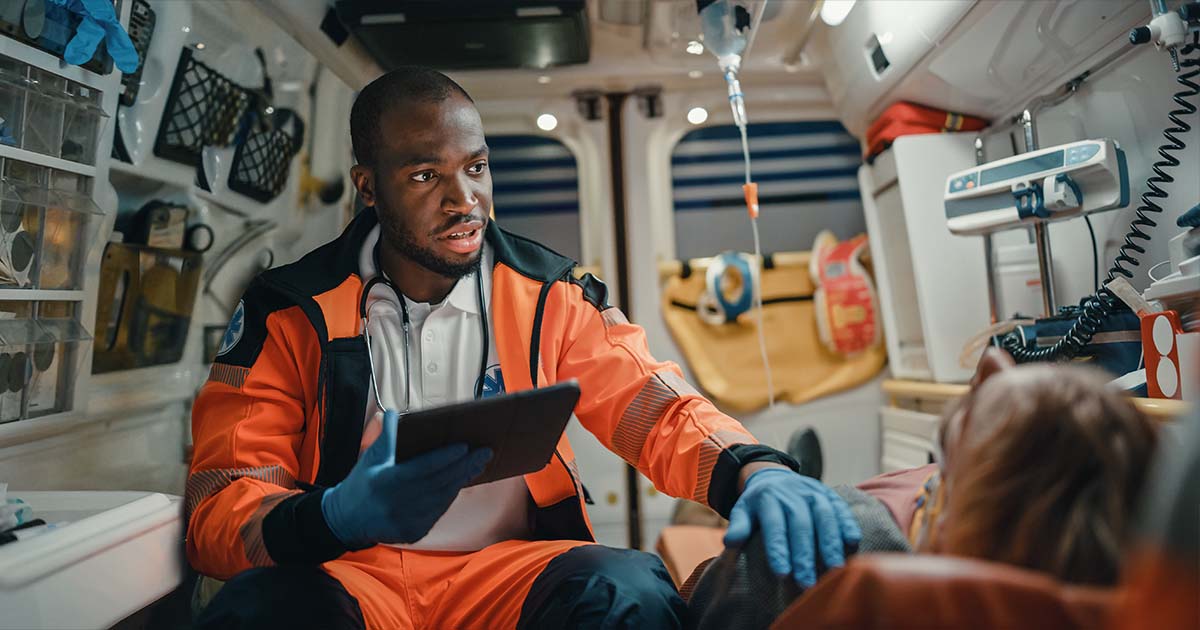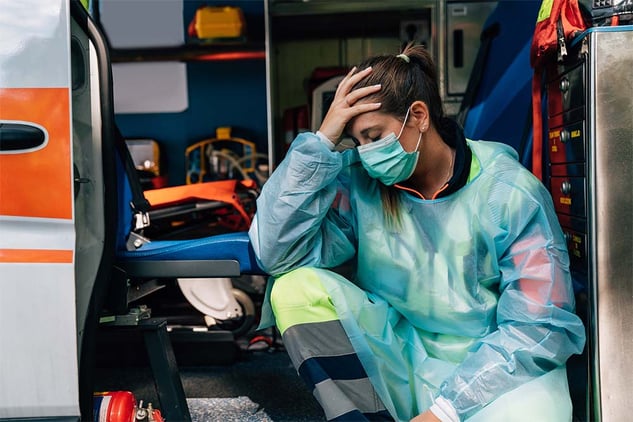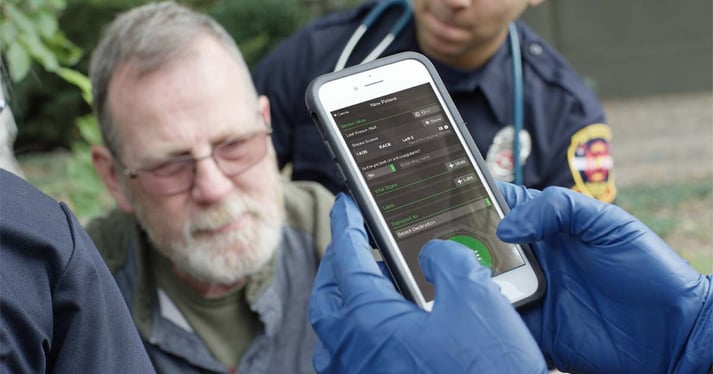Pulsara Around the World - February 2026
January Recap The start of 2026 was on the slow side for our events schedule, with our team heading to the Florida Fire & EMS Conference, the...

If you work in EMS, you experience many challenges during your shift. These challenges begin with always being in a state of readiness to safely arrive on-scene. Once you're there, you jump directly into the thick of the challenge and immediately start assessing problems with the information you can obtain at the time. It’s stressful, exhausting, exhilarating, and yet addictive at the same time—all these things and more.
Aside from treating and transporting patients, there are constantly other things to keep up with: ongoing training for new or updated software, equipment and devices, the latest industry treatment recommendations, and agency rules and regulations. Can EMS workers become fatigued, burned out, and experience depression? Absolutely! Why do they continue to do it, then?
Because while these challenges can and often do occur, there’s something internally higher that drives them to be a part of a “greater good”—to undergo uncomfortable situations for the benefit of others. This at its root is called altruism. Altruism has many shades of definition, but at its core, altruism is about individuals who put the needs and concerns of others above their own comfort and well-being. Altruism is a common trait for many in EMS. One example—amongst many—is a paramedic working out in freezing weather trying to safely extricate a patient from an MVA.
With each new call-out, the statement from Forrest Gump rings true: “My mom always said life is like a box of chocolates, you never know what you’re gonna get.” Each new scenario has features that make them similar to previous ones (the chocolate shell) but also a unique portion (what’s underneath). If we’re honest, there are some in the box that go down easily, and others that make us wish we could find the nearest trash can after taking a bite and finding out what's inside.

EMS serves a wide variety of patients. Likewise, these patients are also experienced by your healthcare partners at hospital facilities. These facilities are responsible for the ultimate treatment outcomes of the patients. Amongst other things, hospitals also experience communication challenges to bring key team members together. The sheer number of departments, teams, and specialists, who are located both onsite and offsite, complicate the issue. Communication to all care members on the hospital end is challenging because there are simply so many players in numerous settings. In many cases, a given role (a house supervisor, for example) has to page, call out, and arrange physical resources individually. This is time-consuming.
Pulsara is a communication and logistics tool that, when used regularly, will bring caregivers and facility resources together in a timely and efficient way. With one activation from EMS, entire teams are brought together instantly. Comparisons of before-and-after data from hospitals using Pulsara showed an average decrease in treatment times across STEMI, stroke, and trauma—including a 59% decrease in door-to-needle times, a 25% decrease in door-to-balloon times, a 41% decrease in door-to-puncture times, a 39% decrease in door-to-CT times for strauma (stroke + trauma), a 50% decrease in door-in, door-out times, and a 28% decrease in first medical contact-to-device times, to name just a few.
Now, back to EMS. EMS is an integral partner in the patient communication process. Medics are often the first to see the patient, and they kick off the communication process for the rest of the patient's journey.
I would like to propose that in EMS, using Pulsara can sometimes be a form of altruism. Why? Well, you may not always see a direct or tangible benefit to submitting the case. With your current workflow, it might not seem like it will make your job easier. It might at first be uncomfortable to spend a little extra time starting the case in Pulsara to notify the hospital of the patient’s condition. These are good things to acknowledge.
And in a way, choosing to activate the case via Pulsara anyway is altruism. It's doing something that might not immediately seem to benefit you—but will directly benefit your patient, as you send their information to the hospital and activate their response sooner. That way, treatment teams and resources at the hospital will be lined up and ready for them when you arrive, with everyone working together to make sure the patient receives treatment as quickly as possible. Because as we all know: time is tissue.

To all our EMS partners: Thank you for what you do in your communities! Thank you for jumping into situations without regard for your own personal well-being. Thank you for experiencing the “whole box of chocolates,” instead of just the ones you like. Thank you for starting cases in Pulsara and providing images, audio recordings, and utilizing video (even if it takes a little extra time) so your hospital partners can better mobilize and be ready for the patients you bring them. You are the embodiment of altruism.
Pulsara is helping with COVID-19 management by helping mitigate patient surge, streamlining patient transfers, minimizing exposure, and more. Learn more about COVID-19 + Pulsara here.

January Recap The start of 2026 was on the slow side for our events schedule, with our team heading to the Florida Fire & EMS Conference, the...

Recent research shows how Pulsara was successfully leveraged to connect more than 6,000 COVID-19 patients to monoclonal antibody infusion centers via...

At Pulsara, it's our privilege to help serve the people who serve people, and we're always excited to see what they're up to. From large-scale...